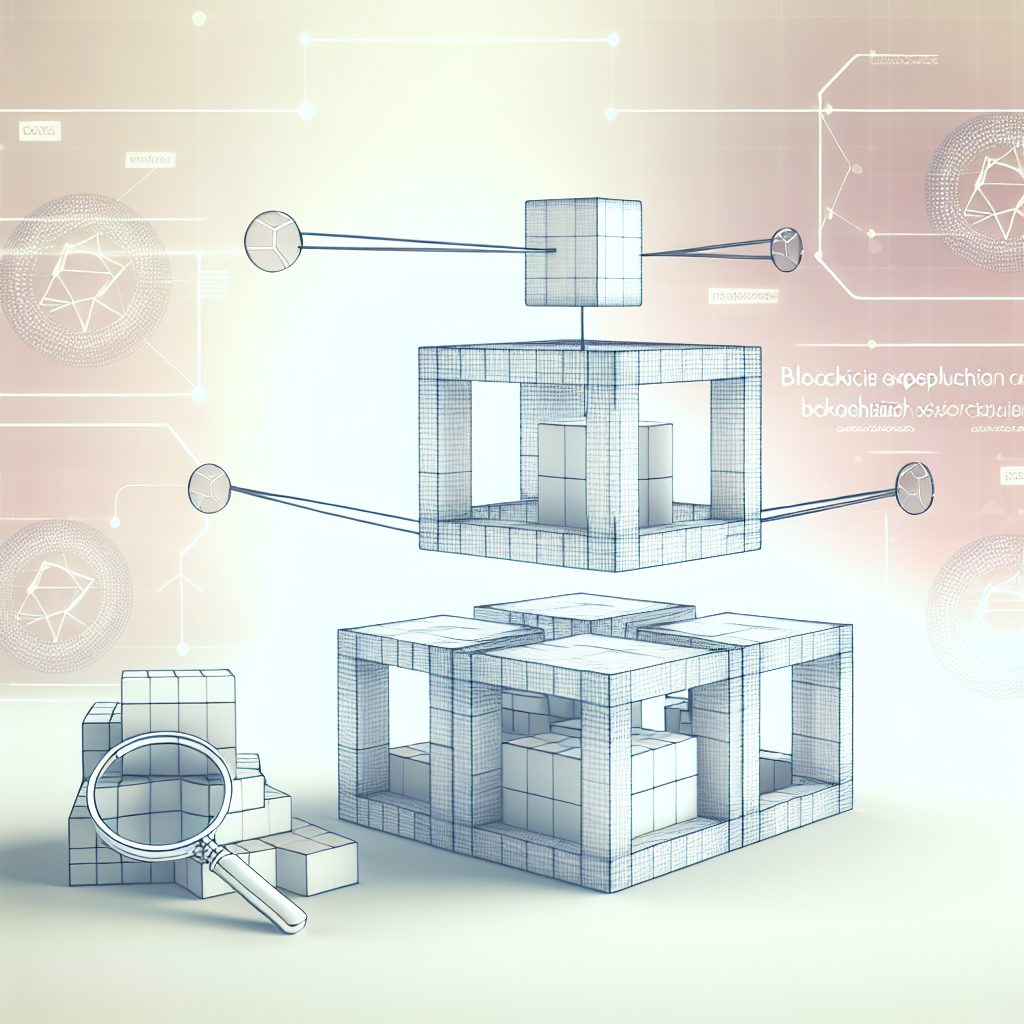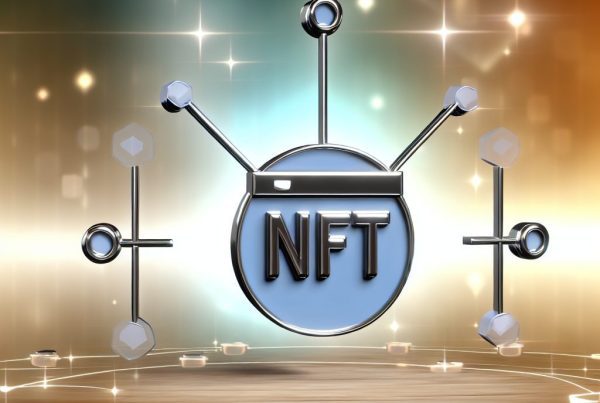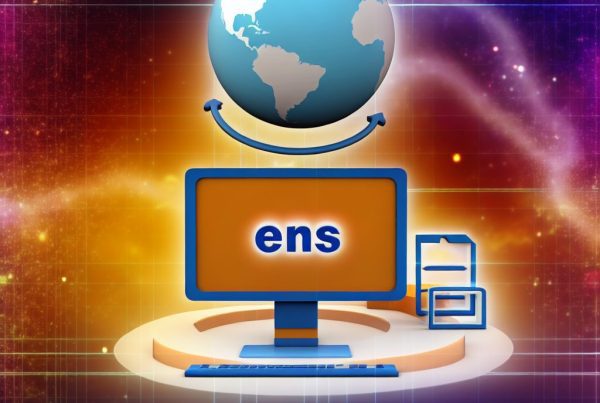Understanding How a Blockchain Explorer Works
In the rapidly evolving world of cryptocurrency, transparency and accessibility are paramount. A blockchain explorer serves as a vital tool for users, developers, and investors alike, providing a window into the intricate workings of blockchain networks. This article delves into the mechanics of blockchain explorers, their significance in the cryptocurrency ecosystem, and how they empower users to navigate the decentralized landscape.
What is a Blockchain Explorer?
A blockchain explorer is a web-based application that allows users to view and interact with the data stored on a blockchain. It provides a user-friendly interface to access information such as transaction history, block details, wallet addresses, and more. Essentially, it acts as a search engine for blockchain data, enabling users to track transactions and verify the integrity of the blockchain.
How Does a Blockchain Explorer Work?
To understand how a blockchain explorer functions, it’s essential to grasp the underlying technology of blockchain itself. Here’s a breakdown of the process:
- Data Collection: Blockchain explorers continuously monitor the blockchain network for new blocks and transactions. They collect data from nodes that validate and propagate transactions across the network.
- Data Indexing: Once the data is collected, it is indexed for easy retrieval. This indexing process allows users to search for specific transactions or blocks quickly.
- User Interface: The explorer presents the indexed data through a user-friendly interface. Users can input wallet addresses, transaction IDs, or block numbers to retrieve relevant information.
- Real-Time Updates: Blockchain explorers provide real-time updates, allowing users to track transactions as they are confirmed and added to the blockchain.
Key Features of Blockchain Explorers
Blockchain explorers come equipped with various features that enhance user experience and provide valuable insights. Some of the key features include:
- Transaction Tracking: Users can track the status of their transactions, including confirmations and timestamps.
- Block Information: Detailed information about each block, including the block height, miner, and transaction count, is readily available.
- Wallet Address Lookup: Users can search for specific wallet addresses to view their transaction history and balance.
- Network Statistics: Explorers often provide statistics about the network, such as hash rate, transaction volume, and average confirmation times.
- API Access: Many explorers offer APIs that developers can use to integrate blockchain data into their applications.
Popular Blockchain Explorers
Several blockchain explorers cater to different cryptocurrencies. Here are some of the most popular ones:
- Blockchain.com: One of the oldest and most widely used explorers for Bitcoin, providing comprehensive data on transactions and blocks.
- Etherscan: The go-to explorer for Ethereum, offering detailed insights into smart contracts, tokens, and decentralized applications (dApps).
- Blockchair: A multi-currency explorer that supports Bitcoin, Ethereum, and several other cryptocurrencies, providing advanced search capabilities.
- Solscan: A dedicated explorer for the Solana blockchain, focusing on high-speed transactions and decentralized finance (DeFi) applications.
The Importance of Blockchain Explorers in Cryptocurrency
Blockchain explorers play a crucial role in the cryptocurrency ecosystem for several reasons:

- Transparency: They promote transparency by allowing users to verify transactions and balances independently, fostering trust in the system.
- Security: By enabling users to track transactions, explorers help identify fraudulent activities and enhance overall security.
- Education: Explorers serve as educational tools for newcomers, helping them understand how blockchain technology works and how to navigate it.
- Market Analysis: Investors can analyze transaction trends and network activity, aiding in informed decision-making.
Real-World Use Cases of Blockchain Explorers
Blockchain explorers have found applications across various sectors, demonstrating their versatility and importance. Here are some notable use cases:
1. Financial Services
In the financial sector, blockchain explorers are used to track cross-border transactions, ensuring compliance with regulations and reducing fraud. For instance, companies like Ripple utilize blockchain technology to facilitate real-time international payments, and explorers help verify these transactions.
2. Supply Chain Management
Blockchain explorers are instrumental in supply chain management by providing transparency and traceability. Companies like IBM and Walmart use blockchain to track the provenance of goods, allowing consumers to verify the authenticity of products.
3. Gaming and NFTs
In the gaming industry, blockchain explorers enable players to track in-game assets and transactions. For example, platforms like Axie Infinity utilize blockchain technology to verify ownership of digital assets, and explorers help users monitor their transactions.
Challenges and Limitations of Blockchain Explorers
While blockchain explorers are invaluable tools, they are not without challenges:
- Data Overload: As blockchain networks grow, the sheer volume of data can overwhelm explorers, making it difficult to retrieve specific information quickly.
- Privacy Concerns: Since blockchain transactions are public, users may have concerns about their privacy and the potential for address tracking.
- Dependence on Network Health: The performance of explorers is directly tied to the health of the blockchain network. If the network experiences issues, explorers may also face downtime.
Future Trends in Blockchain Explorers
The future of blockchain explorers looks promising, with several trends emerging:
- Enhanced User Interfaces: As more users enter the cryptocurrency space, explorers will likely focus on improving user interfaces to cater to both beginners and advanced users.
- Integration with DeFi: With the rise of decentralized finance, explorers will increasingly integrate features that allow users to track DeFi transactions and smart contracts.
- Privacy Features: As privacy concerns grow, explorers may implement features that allow users to mask their identities while still providing transparency.
FAQs About Blockchain Explorers
What is the primary function of a blockchain explorer?
The primary function of a blockchain explorer is to provide users with access to blockchain data, allowing them to track transactions, view block details, and analyze network activity.
Are blockchain explorers free to use?
Yes, most blockchain explorers are free to use, although some may offer premium features or services for a fee.
Can I use a blockchain explorer for any cryptocurrency?
No, each blockchain explorer is typically designed for a specific cryptocurrency or a group of cryptocurrencies. For example, Etherscan is specifically for Ethereum.
How do I find my transaction on a blockchain explorer?
You can find your transaction by entering your transaction ID or wallet address into the search bar of the blockchain explorer.
Is it safe to use blockchain explorers?
Yes, using blockchain explorers is generally safe, as they do not require personal information. However, always ensure you are using a reputable explorer to avoid phishing scams.
Conclusion
Blockchain explorers are essential tools in the cryptocurrency landscape, providing transparency, security, and accessibility to blockchain data. By understanding how they work and their significance, users can navigate the complex world of cryptocurrencies with confidence. As the industry continues to evolve, blockchain explorers will play an increasingly vital role in fostering trust and facilitating innovation.
For the latest updates on cryptocurrency news and price tracking, consider visiting Bitrabo. Stay connected with me on social media: X, Instagram, and Threads.
Disclaimer: The information provided in this article is for educational purposes only and should not be considered financial advice. Always conduct your own research before making investment decisions.
The Crypto Watchlist of the Week 🔎
Subscribe to receive expert-curated projects with real potential—plus trends, risks, and insights that matter. Get handpicked crypto projects, deep analysis & market updates delivered to you.


